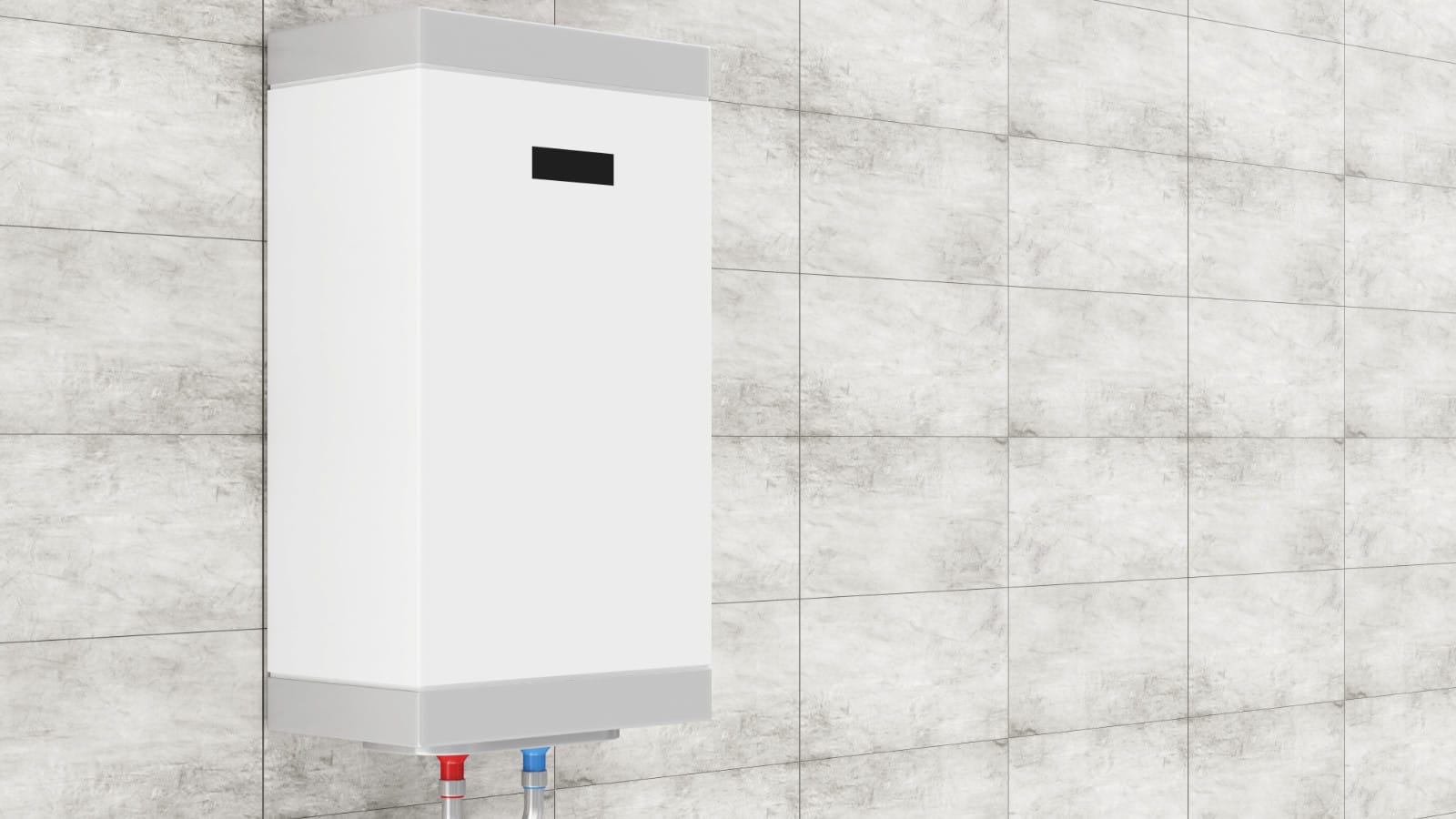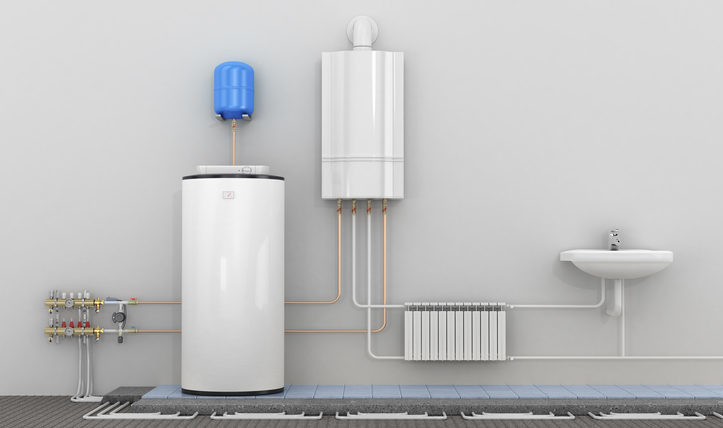Everyone is bound to have their personal idea when it comes to Why You Should Consider a Tankless Water Heater.

In a globe where ease and effectiveness preponderate, it's not a surprise that property owners are regularly on the lookout for smarter methods to handle their home's power consumption and comfort. One development that has gradually gotten popularity is the tankless hot water heater. Yet just what makes these systems attract attention from the standard tank-based designs the majority of us matured with? Allow's dive in and explore the advantages of tankless hot water heater, assisting you make a decision if it's time to make the switch in your home.
Introduction
Picture this: you step into the shower after a lengthy day, anticipating a comforting cascade of hot water, just to be welcomed by icy droplets because the last person utilized it all up. Noise acquainted? Conventional hot water heater store a fixed quantity of hot water, implying you go to the grace of that tank's supply. Tankless systems, on the other hand, warm water as needed. Say goodbye to going out mid-shower, say goodbye to wrestling with schedules just to ensure hot water is readily available.
Recognizing Tankless Water Heaters
What Are Tankless Hot Water Heater?
Tankless water heaters, occasionally known as on-demand or instantaneous water heaters, supply hot water only as it's required. As opposed to saving gallons of pre-heated water, these systems kick into action the moment you turn on the faucet. Water travels through a warm exchanger, heating up in real-time, meaning you obtain a nonstop circulation of warm water without the requirement for a large tank sitting idly by.
Exactly how Do They Differ from Standard Equipments?
Traditional heating systems hold a reservoir of warm water, making use of power to maintain that tank at a constant temperature. Tankless devices get rid of the standing supply, minimizing squandered power and the bulky footprint of a huge cylinder. Basically, you're updating from a "accumulation" state of mind to a "made-to-order" strategy.
Usual Sorts Of Tankless Units
Tankless water heaters typically are available in 2 ranges: gas and electrical. Gas versions often tend to supply greater circulation rates, perfect for larger families, while electrical designs usually serve smaller sized homes and are generally less complicated to install. Furthermore, some systems are made for point-of-use (serving one fixture) while others can manage the entire home's hot water requirements.
Secret Benefits of Tankless Hot Water Heater
Energy Efficiency and Cost Financial Savings
Say goodbye to heating up a giant container's worth of water and maintaining it cozy throughout the day. Tankless heating units reduce standby energy losses, which can decrease utility expenses. While the preliminary expense may be higher, the lasting financial savings frequently justify the investment.
3. Space-Saving Layout
If your home is short on storage space, eliminating the bulky container maximizes valuable space. Tankless devices are small and can often be placed on walls, concealed in corners, or installed in limited utility wardrobes without having all to oneself the entire area.
4. Longer Life expectancy
A properly maintained tankless water heater can outlast its tank-based cousin. Typical tanks could last 10-15 years, while tankless versions can maintain chugging along for two decades or more, making them a strong financial investment with time.
1. Endless Warm Water Supply
Ever had to arrange showers so everybody gets their reasonable share of warm water? With tankless, that ends up being a thing of the past. As long as the heater's circulation capability isn't surpassed, you can take back-to-back showers without turning into a popsicle.
5. Improved Water High Quality
Keeping water in a storage tank can sometimes bring about sediment accumulation or a slightly "off" preference. With tankless systems, fresh water is heated instantly, minimizing the opportunities of sediment buildup and possibly supplying cleaner-tasting water.
Factors to consider Prior To Switching
Though the advantages are engaging, it's a good idea to consider a couple of aspects prior to completely committing.
Evaluating Your Home's Water Use Patterns
If your home simultaneously utilizes several fixtures with high warm water need, make sure the system's circulation price fulfills your needs. Recognizing your usage patterns assists you select the best dimension and kind of tankless heating system.
Maintenance and Treatment Tips
Tankless systems are fairly low maintenance, however they aren't set-it-and-forget-it home appliances.
Normal Cleansing and Descaling
Hard water minerals can build up in the heat exchanger, affecting performance. Routine descaling (frequently suggested every year) maintains the system going for peak performance.
Yearly Specialist Inspections
A yearly checkup from an expert makes sure minor problems are captured early. They'll assess the unit's efficiency, look for leakages, and aid maintain optimum efficiency.
Initial Investment Costs
Tankless heaters normally feature a greater in advance price. Between the device itself and possible setup modifications, the first expense might offer you sticker label shock. But remember to see it as a long-term investment.
Installment Requirements
Depending upon your home's framework, you could need extra electric ability or gas line upgrades. Guarantee you understand the installation demands and talk to a professional to prevent surprises.
Guaranteeing Proper Ventilation
For gas models, correct ventilation is essential to securely expel exhaust gases. See to it venting systems are tidy and properly mounted to stop any kind of potential safety risks.
Comparing Different Brands and Designs
Not all tankless water heaters are produced equal.
Researching Reputable Suppliers
Seek reliable brand names with a background of creating quality devices. A reliable supplier usually supplies better consumer support and longer warranties.
Installment: DIY or Professional?
While some house owners relish dealing with projects themselves, tankless setup might not be the very best time to burst out the toolbox.
Benefits and drawbacks of DIY Setup
A DIY set up can conserve money, yet it comes with threats. Wrong installation can bring about inefficiency or security problems. If you come in handy and have experience, it could be feasible-- but proceed with caution.
Reading Reviews and User Feedback
User reviews and responses from next-door neighbors or buddies who have gone tankless can offer valuable understandings. Occasionally, real-life experiences can be a lot more telling than marketing brochures.
When to Call a Specialist Plumbing Technician
For many, calling a professional guarantees every little thing's done correctly. A specialist plumbing comprehends neighborhood codes, sizing requirements, and airing vent specifications, lowering the risk of accidents.
Taking full advantage of Performance
You have actually invested in a tankless device-- now maximize its efficiency.
Optimal Temperature Settings
Most people set their units in between 120-140 F. Adjusting the temperature level can enhance convenience and savings. Experiment to discover a wonderful area that does not lose power.
Coupling With Low-Flow Fixtures
Wish to extend your device's capacities? Take into consideration mounting low-flow showerheads and faucets. They lower water usage, allowing your tankless system to supply a consistent stream of hot water without stressing.
Environmental Influence
Tankless water heaters straighten with greener living goals.
Lowered Carbon Footprint
By utilizing less power and only home heating water as needed, tankless systems can decrease your home's carbon footprint, minimizing your environmental effect.
Preserving Natural Resources
Less power consumption and less squandered warm water translate right into fewer natural deposits being used, an ecological win-win.
Who Profits Many from Tankless Heaters?
The elegance of tankless heaters is that they can suit a range of families.
Huge Family Members vs. Solitary Occupants
Large families might love the endless warm water supply, while solitary passengers value the energy cost savings from not heating up an entire tank for just one person's early morning shower.
Homeowners with Minimal Area
If your home is short on square video footage, losing the bulky tank liberates room for various other basics-- or maybe just a lot more breathing space.
Eco-Conscious Customers
Going tankless aligns with eco-friendly worths, ensuring you're not wasting energy or resources.
Future Patterns in Tankless Hot Water Heater
The world of home devices is ever-evolving, and tankless hot water heater are no exemption.
Developments in Modern technology
R&D is continuously boosting heat exchangers, making units a lot more efficient and sturdy. Future models might be also quieter, extra compact, and much better matched for differing climates.
Smart Home Integration
Think of adjusting your water heater's temperature via an application or getting maintenance informs on your phone. As wise home tech developments, we'll see more connectivity and benefit.
Final thought
Choosing a tankless water heater is greater than just upgrading your home's warm water system; it's buying lasting convenience, energy performance, and a greener way of life. By considering your household's water use, bearing in mind installation needs, and dedicating to regular upkeep, you can take pleasure in a stable stream of warm water without the baggage of a large tank. As technology progresses, you can expect even smarter, much more efficient tankless solutions that not only make your life easier however additionally profit the planet.
Why You Should Consider a Tankless Water Heater for Your Home
Energy Efficiency and Cost Savings
Tankless water heaters, also known as on-demand water heaters, heat water only when needed. This means they don't waste energy keeping a tank of water hot constantly. This efficiency translates into substantial cost savings on your monthly energy bills.
Endless Hot Water Supply
One of the significant advantages of tankless water heaters is their ability to provide a continuous supply of hot water. Traditional tank water heaters have a limited capacity and can run out of hot water, especially during peak usage times. In contrast, tankless water heaters can provide an endless stream of hot water, making them ideal for larger families or homes with high water usage.
Space-Saving Design
Tankless water heaters are compact and take up significantly less space compared to traditional tank heaters. They can be installed on walls, under cabinets, or even outside, freeing up valuable space in your home. This makes tankless water heaters a great option for smaller homes or properties with limited space for a traditional water heater.
Longer Lifespan and Lower Maintenance
Tankless water heaters typically have a longer lifespan compared to traditional tank heaters. They can last up to 20 years or more with proper maintenance. Additionally, tankless systems are designed with replaceable parts, which can extend their lifespan further and reduce long-term maintenance costs.
Environmentally Friendly
Reducing energy consumption not only saves you money but also benefits the environment. Tankless water heaters contribute to a smaller carbon footprint by using less energy to heat water. Their energy efficiency and ability to minimize standby heat loss make them an eco-friendly choice for environmentally conscious homeowners.
Customized Temperature Control
Tankless water heaters offer precise temperature control, allowing you to set the desired temperature to meet your specific needs. This level of customization ensures you always have water at the perfect temperature for your comfort and usage requirements.
https://beantownservices.com/blog/consider-tankless-water-heater-for-your-home

I'm just very excited about and I hope you liked the new post. Loved our blog? Please share it. Let somebody else discover it. Thanks for being here. Please check our site back soon.
Book Appointment
Comments on “Your Guide To The Upsides Of Instant Water Heaters”